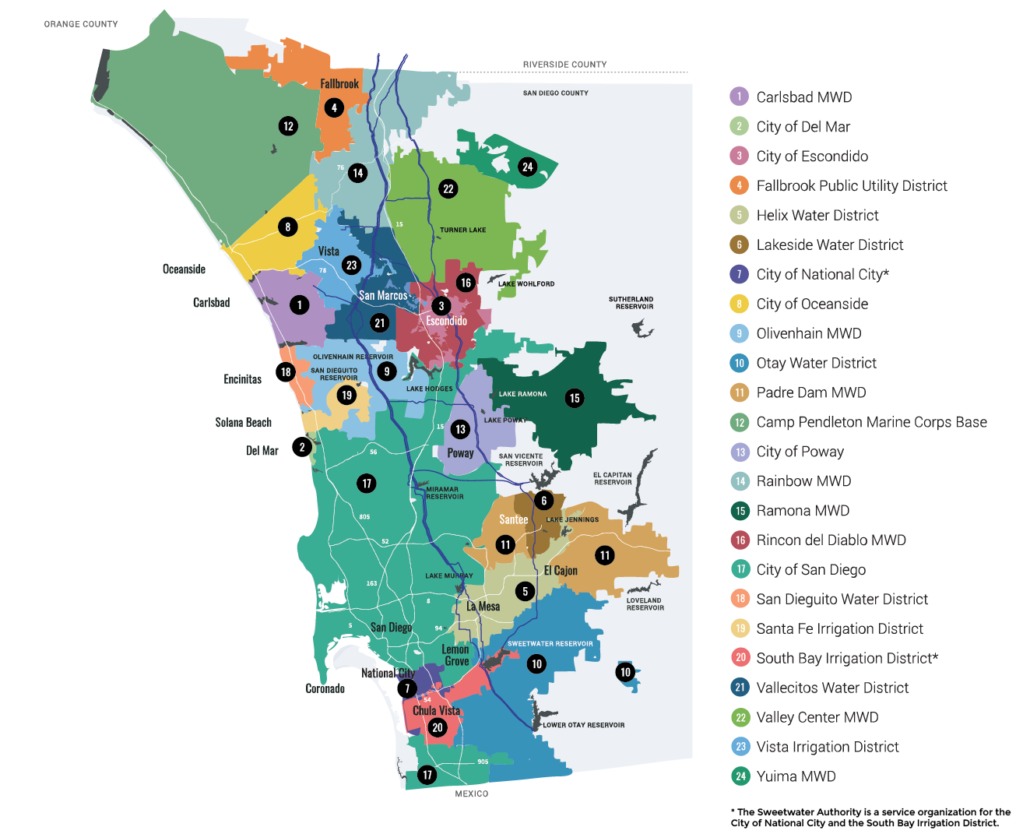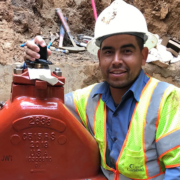This feature highlights water utility employees in the San Diego region working during the coronavirus pandemic to ensure a safe, reliable and plentiful water supply. The water industry is among the sectors that are classified as essential.
Water Utility Hero of the Week: George Crabbe
Job/Agency: City of Carlsbad Utility Worker II
How did you become interested in working in the water industry?
I became interested in working in the water industry a few years back when I got into the Local 89 Laborers Union as an apprentice and landed different jobs. The jobs just so happened to be underground water utility installations. I loved it, but I started thinking long-term and with the support of my family and friends, the pieces fell into place. Four years later, I am here at the Carlsbad Municipal Water District.
How has your job changed during the pandemic?
Our job in the field hasn’t changed. I am very fortunate and thankful to still be working during this pandemic. Our water operators must continue providing safe reliable drinking water and our departments must ensure that the water is delivered with little to no interruption. The one change in the workplace is abiding to the social distancing requirements and the new norm of wearing masks. This has been quite an adjustment since we work in groups while doing our preventative maintenance and water service/water main breaks repairs.
How are you keeping safe?
We are keeping safe by following all the requirements for social distancing. We wear masks and gloves, wipe down our trucks, equipment and office spaces, and we make sure to wash our hands and use hand sanitizer frequently.
What are you most looking forward to after the crisis ends?
I am looking forward to all the state parks and trails opening and being able to go out and enjoy time with my family and friends. I am looking forward to people being able to go back to work and life going back to normal.
Editor’s note: The Water Utility Hero of the Week highlights essential work performed during the COVID-19 pandemic by employees of the San Diego County Water Authority’s 24 member agencies.





